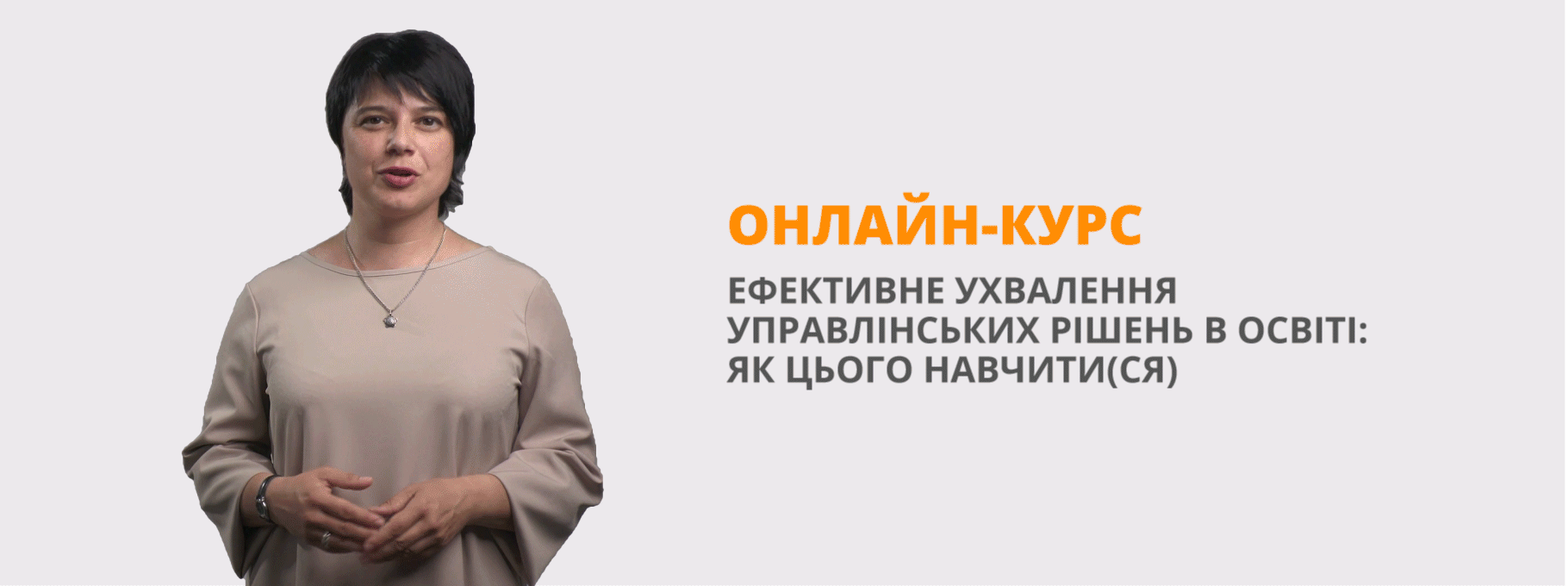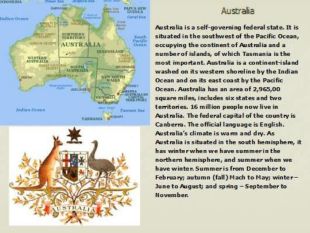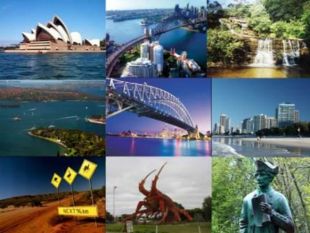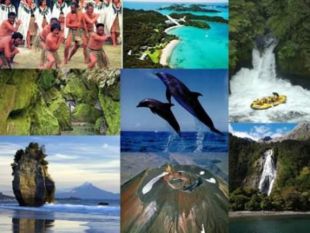Позакласний захід з іноземної мови “Подорож англомовними країнами”
- захід.docx docx
- подорож до англомовн країн.ppt ppt
Позакласний захід для учнів 1 а 2 курсів з іноземної мови “Подорож англомовними країнами”
Travelling to the English-Speaking Countries
Мета: провести уявну подорож та розглянути англомовні країни, розвивати навички діалогічного та монологічного мовлення, виховувати повагу до мови.
Обладнання: мультимедійна презентація на тему: «Travelling to the English-Speaking Countries». (додається).
Тип уроку: позакласний захід.
Хід позакласного заходу:
Teacher: Today we have a press-conference «Travelling to the English-Speaking Countries».
Slide 1
Our main aim is to improve our knowledge, to learn new words and expressions, to listen to some new and interesting information about English-Speaking countries and to do some tests. Imagine that the delegations from the UK, the USA, Canada, Australia and New Zealand came to our gymnasia.
Will you present us your country.
Pupil 1:The United Kingdom is situated off the northwest coast of Europe between the Atlantic Ocean on the north and northwest and the North Sea on the east. It is separated from the Continent by the English Channel. The United Kingdom includes Great Britain and Northern Ireland, the Isles of Man and Channel Islands. Great Britain, the largest island in Europe, contains England, Scotland and Wales.

 Slide 2
Slide 2
Pupil 2:The United Kingdom has an area of 94,249 square miles. The population of the United Kingdom is 56,6 million people. The capital of the country is London. English is the official language. The climate of Great Britain is temperate and mild. It is never hot in summer or too cold in winter. It often rains in England. The surface of England and Ireland is flat, but Scotland and Wales are mountainous.
Pupil 3:The main rivers are the Thames, the Severn, the Clyde, the Trent and the Mersey. The longest river is the Severn. The largest cities of the country are London, Birmingham, Manchester, Cardiff, Glasgow. The important ports are London, Cardiff, Glasgow. There are many universities, colleges, libraries, museums and theatres in the country. The most famous universities are Cambridge University, Oxford University, Glasgow University.
Slide 3
Teacher: You have listened to the delegation of the UK. Now let’s do a test. This test will show how you understood the information.
The UK
Choose the right item:
1. The United Kingdom is situated off …
a. the southeast coast b. northwest coast c. southwest coast
2. It is washed by …
a. the Atlantic ocean and the Pacific Ocean b. the North Sea and the Atlantic Ocean c. the Arctic Ocean and the North Sea.
3. The UK is separated from the Continent by …
a. English Channel b. the North Sea c. the Black Sea
4. The largest island of the UK contains …
a. England and Scotland b. Ireland, England and Scotland c. Scotland, England and Wales
5. The climate of Great Britain is …
a. very cold b. warm and temperate c. mild and temperate
6. The surface of England and Ireland is …
a. flat b. mountainous c. a vast plain
7. The longest river in Great Britain is …
a. the Thames b. the Severn c. the Trent
8. The United Kingdom includes …
a. Northern Ireland and the Isles of Man b. England and Scotland c. Great Britain and Northern Ireland
9. It is never too … in summer or too … in winter
a. warm … cool b. hot … cold c. rainy … windy
10. The important … are London, Cardiff, Glasgow.
a. ports b. cities c. districts
11. The full name of the country is …
a. Great Britain b. England c. the United Kingdom of Great Britain and Northern Ireland
12. It often … in England
a. snows b. rains c. cool
Teacher: Now the delegation from the USA will tell about its country.
Pupil 4:The United States is located on the continent of North America and is the 4th-largest country in the world. It has an area of 540,939 square miles. It is bordered on the north by Canada, on the east by the Atlantic Ocean, on the south by the Gulf of Mexico and Mexico, and on the west by the Pacific Ocean. The population of the USA is 238,7 million people.
Slide 4
Pupil 5: The capital of the country is Washington, D.C. (District Columbia). It was named in honour of the first President whose name was George Washington. People of different nationalities live in the USA. There are many scientific institutions, museums, libraries, theatres and other
places of interest there. The USA is a federal republic.
Congress is the American parliament, which consists of two Chambers, the House of Representatives and the Senate. The President is the head of State and Government.
Slide 5
TestThe USA
1. The USA is located on the continent of …
a. South America b. Central America c. North America
2. The USA is the … country in the world.
a. fourth-largest b. fifth-largest c. third-largest
3. The USA is bordered on the north by …
a. the Atlantic Ocean b. the Gulf of Mexico c. Canada
4. It is washed by …
a. the Atlantic Ocean, the Pacific Ocean and the Gulf of Mexico b. the Pacific Ocean and the Gulf of Mexico c. the Atlantic Ocean and the
Pacific Ocean
5. Washington was named I honour of the … whose name was George Washington
a. fifth President b. first President c. last President
6. The official language of the United States is …
a. American b. English c. German
7. Congress consists of two Chambers …
a. the House of Lords and the House of Commons b. the House of Commons and the Senate c. the House of Representatives and the Senate
8. … is the head of State and Government
a. The Prime Minister b. The President c. The Queen
9. The USA is …
a. a federal republic b. a parliamentary monarchy c. self-governing state
10. People of … live in the United States.
a. one nationality b. different nationalities c. different origin
11. The capital of the USA is …
a. New York b. Washington c. London
12. The full name of the country is …
a. America b. the United States c. the United States of America
Teacher: Now let’s listen tothe information about Canada.
Pupil 6:Canada covers all of the North American continent north of the US except Alaska and the small French Islands. Its total area of 3,851,809 square miles, makes it the second largest country in the world. Canada is bordered by three oceans, the Atlantic, the Arctic and the Pacific. The population of Canada is 25,7 million people. The capital of the country is Ottawa. Canada is a nation composed of two linguistic and cultural groups: French and English. That’s why the two official languages of Canada are English and French. In the north of the country there are 330,000 Indians and 25,000 Eskimos who are the original peoples of the North, Central and South America.
Slide 6
Pupil 7:The Great Lakes which include lakes Superior, Huron, Erie and Ontario Canada shares with the United States. Besides the Great Lakes there are also Great Bear Lake, Great Slave Lake, Lake Winnipeg and many smaller ones. The most admirable sight which attracts tourists from all over the world is the Niagara Falls. They are on the Niagara River between Lake Erie and Lake Ontario. All parts of the country have cold weather in winter.
Slide 7
Pupil 1:Canada is a self-governing federal state. Formally the head of state is the King or Queen of England. Canada includes ten provinces: Newfoundland, Prince Edward Island, Nova Scotia, New Brunswick, Ontario, Quebec, Manitoba, Saskatchewan, Alberta, British Columbia and two territories: Yukon and the Northern Territories. Canada has a Parliament. The Canadian Parliament is made up of the House of Commons and the Senate. Ottawa, Toronto, Montreal, Winnipeg, Edmonton, Vancouver, Quebec and Hamilton are Canada’s most important cities. The country has also the largest ports in the world. Canada’s large ports are Quebec, Montreal, Toronto and Vancouver.
Slide 8
Test Canada
1. Canada covers all of the … American continent.
a. South b. Central c. North
2. Canada is located on … of the US except Alaska.
a. north b. south c. east
3. Canada is washed by …
a. the Atlantic Ocean and the Arctic Ocean b. the Pacific Ocean, the Atlantic Ocean and the Arctic Ocean
c. the Pacific Ocean and the Atlantic Ocean
4. The capital of Canada is …
a. Ottawa b. Toronto c. Montreal
5. The official languages of Canada are …
a. English and German b. English and Indian c. French and English
6. … are the original people of the North, Central and South America.
a. English and French b. Indians and Eskimos c. Canadians
7. Canada is a self-governing ….
a. federal state b. independent state c. federal republic
8. Formally the head of the stare is … of England.
a. the President b. the Prime Minister c. the Queen
9. The Canadian Parliament is made up of …
a. the House of Commons and the House of Lords b. the House of Commons and the Senate c. the House of Representatives and the Senate
10. The most admirable sight which attracts tourists from all over the world is ….
a. the Niagara River b. the Great Lakes c. the Niagara Falls
11. All parts of the country have … in winter.
a. cold weather b. warm weather c. hot weather
12. The Niagara Falls are on the Niagara Falls between …
a. Lake Erie and Lake Huron b. Lake Ontario and Lake Erie c. Lake Huron and Lake Ontario
Teacher: Now let’s travel to Australia
Pupil 2:Australia is a self-governing federal state. It is situated in the southwest of the Pacific Ocean, occupying the continent of Australia and a number of islands, of which Tasmania is the most important. Australia is a continent-island washed on its western shoreline by the Indian Ocean and on its east coast by the Pacific Ocean. Australia has an area of 2,965,00square miles, includes six states and two territories. 16 million people now live in Australia. The federal capital of the country is Canberra. The official language is English. Australia’s climate is warm and dry. As Australia is situated in the south hemisphere, it has winter when we have summer in the northern hemisphere, and summer when we have winter. Summer is from December to February; autumn (fall) Mach to May; winter – June to August; and spring – September to November.
Slide 9
Pupil 3:There are many unusual animals in Australia. The best known are the kangaroo, duckbilled platypus, the wallaby, the koala bear, the dingo or wild dog and the possum. The emu is the large Australian bird which cannot fly but runs well. The emu and the kangaroo are represented on the national emblem of Australia. Australia is the flattest of the continents.
TestAustralia
1. Australia is situated in the southwest of the …
a. Atlantic Ocean b. Pacific Ocean c. Indian Ocean
2. It is washed by …
a. the Pacific Ocean and the Indian Ocean b. the Atlantic Ocean and the Indian Ocean c. the Pacific Ocean and the Atlantic Ocean
3. The federal capital of the country is …
a. Sydney b. Canberra c. Melbourne
4. The official language of the country is ….
a. French b. Australian c. English
5. Australia’s climate is relatively …
a. warm and wet b. dry and warm c. dry and cool
6. Australia is situated in the … hemisphere.
a. south b northern c. western
7. Winter in Australia is from … to ….
a. December … February b. March … May c. June … August
8. Spring in Australia is from … to …
a. June … August b. September … November c.. March … May
9. … are represented on the national emblem of Australia.
a. The emu and the kangaroo b. The koala bear and the emu c. The possum and the dingo
10. Australia has winter when we have …
a. autumn b. spring c. summer
11. The emu is a large bird which …
a. can fly and runs well b. cannot fly but runs well c. cannot run well but flies well
12. Australia includes …
a. 5 states and 2 territories b. 6 states and 2 territories c. 6 states and 3 territories
Teacher: And now the last travelling to the English-Speaking country. It is New Zealand.
Pupil 4:New Zealand is an independent state. It is situated southeast of Australia. It consists of North Island, South Island, Stewart Island, the Chatham Island, and several island groups. New Zealand has a total area of 103,736 square miles. Over 3,3 million people now live in the country. The capital of the country is Wellington. English is the universal language, although Maori is still spoken among the Maori population and is taught in the Maori schools. New Zealand has a temperate wet ocean climate. The chief rivers are the Waikato, the Wairu, the Rangitata, the Clutha, etc.
Slide 12
Pupil 5:There few native animals in the country. Among the non-flying birds the most interesting is the kiwi, it is found only in New Zealand, and it has become the national emblem. New Zealand has close links with Britain and formally the head of the state is King or Queen of Great Britain. The Parliament consists of one House only, the House of Representatives. The Prime Minister is the head of the government.
TestNew Zealand
1. New Zealand is …
a. an independent state b. a parliamentary monarchy c. a federal republic
2. It is situated … of Australia.
a. northeast b. southeast c. southwest
3. New Zealand consists of … and several island groups
a. 4 large islands b. 5 large islands c. 3 large islands
4. The capital of New Zealand is …
a. Auckland b. Christchurch c. Wellington
5. The Maori population still speaks …
a. English b. Maori c. French
6. New Zealand has a … climate.
a. temperate wet ocean b. warm and dry c. warm and wet
7. There are … native animals in the country.
a. many b. a lot of c. few
8. Among the non-flying birds the most interesting is …
a. the emu b. the kiwi c. penguin
9. Formally the head of the state is … of England.
a. the President b. the Prime Minister c. the Queen
10. The Parliament consists of … only.
a. one House b. two Houses c. three Houses
11. …. is the head of the government.
a. The President b. The Prime Minister c. The Queen
12. English is the … language in New Zealand
a. official b. state c. universal
Teacher: Make up dialogues about English-Speaking countries.
Our travelling has finished. Now you can summarize your scores and see what you have remembered about English-Speaking countries. Your home-task is to write down the composition “My Impressions of the Travelling to the English-Speaking countries


про публікацію авторської розробки
Додати розробку




























